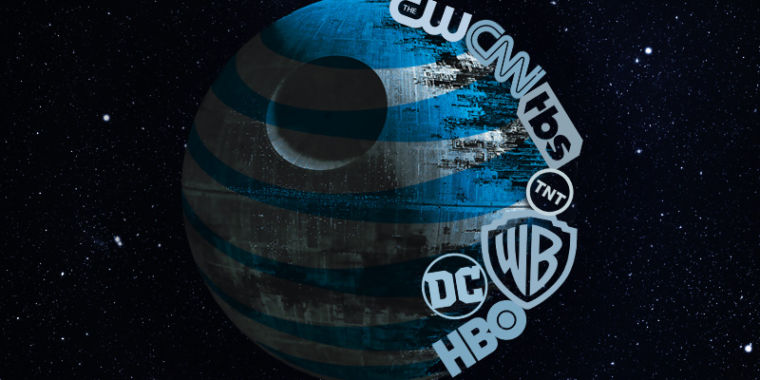
AT&T yesterday completed its acquisition of Time Warner Inc., two days after a federal judge ruled against a Department of Justice (DOJ) attempt to block the deal. The DOJ could still appeal the ruling, but it agreed not to seek a stay pending appeal, allowing the merger to be completed.
You can expect more personalized advertisements as AT&T combines a major programmer with its DirecTV, home broadband, and mobile services.
By adding Warner Bros., HBO, and Turner to AT&T’s TV and broadband services, the combined company will “bring a fresh approach to how the media and entertainment industry works for consumers, content creators, distributors and advertisers,” AT&T CEO Randall Stephenson said in the merger completion announcement. AT&T will “offer customers a differentiated, high-quality, mobile-first entertainment experience,” he said.
“Firewall” between Time Warner and AT&T Communications
The DOJ’s agreement not to seek a stay came after AT&T said it would maintain some separation between its old and new business units. Turner networks will be part of a separate business unit, which is distinct from the AT&T Communications division that operates DirecTV, U-verse, and the company’s home and mobile broadband businesses.
“AT&T Communications will have no role in setting Turner’s prices or other terms to unaffiliated distributors, and Turner will not consult with AT&T Communications in setting Turner prices or other terms for programming provided to unaffiliated video distributors,” AT&T said in a letter to the DOJ yesterday.
AT&T also said that it “will implement a firewall between Turner and AT&T Communications to prevent the transmission or exchange, either directly or indirectly, of competitively sensitive information of unaffiliated programmers or distributors.”
That separation won’t prevent AT&T from using customer data gleaned from its broadband and TV services to sell more targeted ads, though. Internet users would have to opt out of targeted ads, because last year Congress prevented implementation of privacy rules that would have required home Internet and mobile broadband providers to get consumers’ opt-in consent before using their Web browsing histories for advertising.
AT&T said it will have an advertising and analytics division that “provides marketers with advanced advertising solutions using valuable customer insights from AT&T’s TV, mobile and broadband services, combined with extensive ad inventory from Turner and AT&T’s pay-TV services,” AT&T said in the merger completion announcement. Time Warner will become “AT&T’s media business” and be given a new name, AT&T said.
AT&T could come up with new ways of packaging Time Warner content. Last year, Stephenson suggested that hourlong Game of Thrones episodes could be cut into 20-minute episodes for people watching on mobile devices.
AT&T, Verizon, Comcast expand into new businesses
AT&T buying Time Warner continues a trend of broadband and pay-TV providers getting deeper into the programming and advertising industries. Verizon purchased AOL in 2015 and Yahoo in 2017, for example.
Comcast, which purchased NBCUniversal in 2011, is now attempting to buy major portions of 21st Century Fox. Comcast made its offer for Fox the day after AT&T’s court victory, saying that it is now “highly confident that our proposed transaction will obtain all necessary regulatory approvals in a timely manner.”
The DOJ’s lawsuit against the AT&T/Time Warner merger raised concerns about TV and broadband network operators controlling both distribution and content. As the owner of Time Warner programming, AT&T could raise prices on its rivals and hinder development of online streaming services that compete against cable and satellite TV, the DOJ argued.
But the government failed to prove that the merger would substantially lessen competition or that AT&T would use its ownership of premium content to harm rival TV providers, US District Judge Richard Leon’s ruling said. AT&T had argued that it has no intention of limiting distribution of Time Warner programming.
Be the first to comment